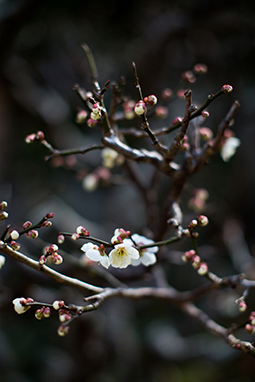The Sakuranomiya senior high school basketball captain chose death rather than experience another demeaning day of face slaps from his coach.
The teacher “got results”, so his methods were accepted at the school for 18 years. Osaka police have handed the coach’s case to the Public Prosecutor’s Office for indictment.
The Japanese women’s judo team coach was described as a “sadist” in the Japanese Olympic Committee’s investigation of judo coach violence.
This came to light only after the elite female Olympic athletes complained about his violent methods of instruction, saying: “Our dignity as humans was disgraced”.
Some Japanese media supported the judo coach’s “tough love” methods, and noted that his charges did better than the men’s judo team at the 2012 London Olympic and Paralympic Games.
The Weekly Playboy magazine helpfully pointed out that “female athletes are difficult to work with”, while Hakubun Shimomura, minister of education, culture, sports, science and technology, described the situation as the “most serious in Japan’s sporting history”.
However, this culture of harassment, based on a position of power, is not limited to the sports world. The first time I saw it in the workplace I was amazed.
I was working as a coordinator in Queensland, Australia, in the 1980s for a visiting Japanese film crew who were shooting a series of ads. I saw the still cameraman’s second assistant fumble and drop a completed film roll onto the sand of Surfers Paradise beach.
In a split second, the diminutive, moustachioed director strode across the beach, reached up and whacked the 110kg second assistant hard across the face. Wow!
Perspective is important. Physical violence such as this in the workplace is not the biggest problem leaders face in Japan. These cases are probably statistically insignificant.
The more widespread problem is the deep-seated attitude of Japanese managers to performance enhancement.
Drill sergeants were sent into Japanese schools beginning in the 1920s to toughen up the younger generation so they could become cannon fodder for the Japanese empire. Officer violence towards new conscripts, who entered the Imperial Japanese Forces from the late 1930s, was designed to mould youth for death or glory.
Post-war Japan, like other countries, relied on its demobbed officer corps to provide corporate leadership.
The Japanese school system has continued the “tough love” approach to produce excellence. And so it is with industry, minus the face slapping.
Most Western captains of industry discovered long ago that peak performance could be attained better with praise and encouragement, rather than criticism, condemnation and complaint. However, many in Japan missed that email.
Management mindsets here are more firmly fixed on a culture of making no mistakes. This is great from a diligence, discipline and reliability viewpoint.
However, the downside is what happens when mistakes do occur. This is rarely a teachable moment but, rather, a sharp reminder of who is the boss and who is “stupid”.
The contradiction of requesting creativity, new ideas and methods—and then rapidly jumping on any errors—reveals staggeringly diminished self-awareness on the part of managers.
Growing up in Japan, experiencing how performance is “enhanced” in the school club environment, with more of the same at university, takes Japanese workers and managers to a different place compared with that of their foreign bosses.
To create a counterpoint to these “tough love” practices requires an understanding that the phenomenon exists in the first place.
You probably learnt about the Osaka basketball captain and the female judo athletes in the English media here.
However, for non-Japanese, it is not a natural mental leap to connect these occurrences to their own organisation. You may never see it or hear about it, because the Japanese system filters you out of the loop, punishes whistleblowers and sweeps “shameful” occurrences under the tatami.
Rather, presume there is a culture of criticism that needs to be replaced with praise and encouragement. Presume that the managers need guidance about handling mistakes so that the end result is to enable a culture of creativity, growth and, therefore, differentiated advantage over rivals.
Presume that “tough love” will have been the default on-the- job training instructional methodology of many of your managers, especially those schooled in the 1950s, ’60s and ’70s.
Presume that manager criticism is driving your firm’s new entrants—the young, talented, expensive, four-year course graduates—into the arms of your rivals, as they vote with their feet and depart. Presume the system won’t suggest you need to do anything about this.
It might be time to consider aligning ancient Japanese pedagogy with modern best practice. Praise some sense into them!



